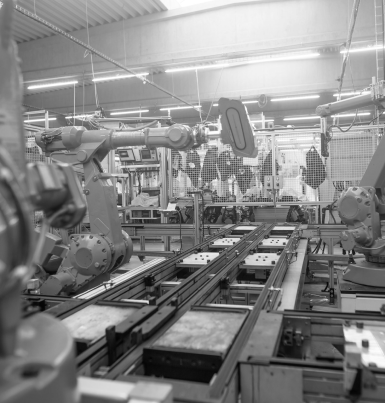In the fast-paced and ever-changing business environment of today, companies are under constant pressure to optimise their operations, reduce costs, and enhance customer satisfaction. Operational Excellence is no longer a luxury but a necessity for organisations to thrive and remain competitive. Enter Artificial Intelligence (AI)—a transformative force that is reshaping the way businesses approach operational efficiency and excellence.
What is Operational Excellence?
Operational Excellence is a systematic approach to achieving and sustaining superior performance within an organisation. It involves optimising processes, reducing waste, and ensuring consistent, high-quality delivery of products or services. Organisations that achieve Operational Excellence can adapt to changing market conditions, meet customer expectations, and sustain long-term growth.
How AI is Revolutionising Operational Excellence?
AI offers a variety of capabilities that make it an invaluable tool for driving Operational Excellence. From process automation and predictive analytics to advanced decision-making and real-time monitoring, AI can enhance various aspects of business operations.

1. Process Automation
AI significantly contributes to Operational Excellence through process automation. Leveraging AI-powered tools like robotic process automation (RPA), businesses can automate repetitive, rule-based tasks, allowing employees to focus on higher-value activities. This reduces human error and accelerates processes, leading to faster delivery times and improved customer satisfaction.
Example: A manufacturing company can use AI-driven automation to streamline supply chain management by automatically reordering materials based on real-time inventory levels, reducing stockouts and minimising excess inventory.
2. Predictive Maintenance
In industries reliant on complex machinery, maintenance is critical to Operational Excellence. AI can predict when machines are likely to fail by analysing historical data and identifying patterns that indicate potential breakdowns. This enables proactive maintenance, minimising downtime and reducing costs.
Example: An airline can use AI-based predictive maintenance to monitor its fleet's health. By detecting potential issues before they become critical, the airline can avoid costly delays and maintain high service reliability.

3. Advanced Analytics and Decision-Making
AI’s ability to analyse vast amounts of data in real-time helps organisations make more informed decisions quickly. AI-powered advanced analytics tools can identify trends, uncover hidden insights, and provide actionable recommendations, enhancing strategic planning and operational efficiency.
Example: A retail chain can use AI to analyse customer purchase patterns, optimising store layouts, inventory levels, and staffing to align with consumer demand, improving both sales and customer experience.
4. Enhancing Quality Control
AI plays a pivotal role in improving quality control processes. Machine learning algorithms can detect defects in products with greater accuracy than human inspectors, leading to improved product quality, reduced waste, and increased customer satisfaction.
Example: In the pharmaceutical industry, AI can monitor production processes in real-time, ensuring each batch meets strict quality standards, reducing the risk of recalls and enhancing brand reputation.

5. Optimising Supply Chain Management
AI enhances supply chain management by providing end-to-end visibility, optimising logistics, and predicting demand. This enables companies to respond swiftly to supply and demand changes, reducing lead times and ensuring the right products are available at the right time.
Example: An e-commerce company can use AI to predict peak shopping periods, adjusting its inventory and logistics to ensure timely delivery and high customer satisfaction during busy seasons.
Overcoming Challenges in AI Adoption
While AI’s benefits for Operational Excellence are clear, adoption comes with challenges. Organisations must address data privacy concerns, system integration issues, and the need for skilled personnel to manage and interpret AI outputs. A strategic approach to AI implementation, including employee training and change management, is crucial to overcoming these hurdles and realising AI’s full potential.
The Future of AI in Operational Excellence
As AI continues to evolve, its impact on Operational Excellence will grow. Emerging technologies such as AI-powered digital twins, autonomous systems, and intelligent process automation will redefine business processes, driving even greater efficiency and effectiveness.
Companies that embrace AI and integrate it into their operational strategies will not only achieve Operational Excellence but also gain a sustainable competitive advantage. By leveraging AI’s capabilities, organisations can transform their operations, delivering superior value to customers and stakeholders alike.
Conclusion
AI is more than just a technological trend; it is a powerful enabler of Operational Excellence. From automating routine tasks and enhancing decision-making to predicting maintenance needs and optimising supply chains, AI has the potential to revolutionise how businesses operate. As organisations explore and implement AI-driven solutions, they will unlock new opportunities for growth, innovation, and sustained success.
Embracing AI in the pursuit of Operational Excellence is no longer just a strategic choice—it’s a necessity for organisations looking to thrive in the digital age.
If you would like to discuss how you can incorporate AI into your business operations to help drive Operational Excellence get in touch today.

